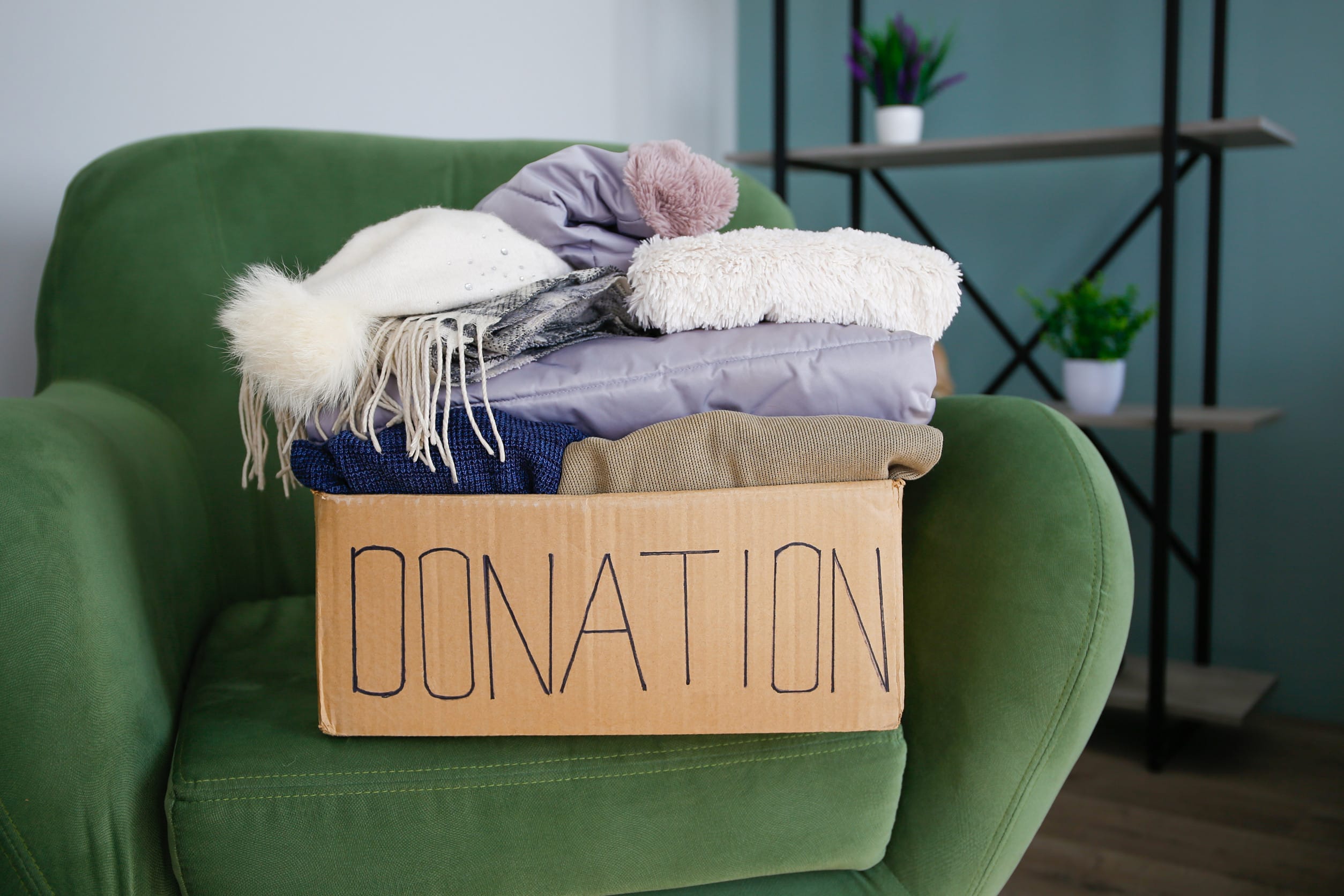10 Items Donation Centers Are Begging You to Stop Dropping Off

Dropping off old items at a local donation center feels like a generous and responsible way to declutter your home. But not everything you leave behind is welcome—or even helpful. In fact, donation centers across the country are begging people to stop bringing certain things that create more burden than a benefit. These items take up space, cost time and money to dispose of, and sometimes create safety hazards for workers. Before you load up your trunk again, here’s what not to donate if you want to make a meaningful impact.
1. Broken Electronics That Don’t Work
Donation centers aren’t tech repair shops, and they can’t resell items that don’t power on or function properly. Whether it’s an old DVD player, microwave, or television, broken electronics usually get tossed straight into the dumpster. These items not only clutter donation floors—they cost charities money to dispose of properly. If it’s been sitting in your garage for years and no longer works, it’s best to recycle it through an electronics-specific drop-off site. What not to donate definitely includes anything that can’t pass a basic plug-in test.
2. Stained or Torn Clothing
While clothing is one of the most common items donated, it’s also one of the most problematic when it’s damaged. Many donation centers report that up to 30-40% of donated clothes are unsellable due to stains, holes, or heavy wear. Sorting and disposing of these unusable garments consumes valuable volunteer time. If you wouldn’t gift it to a friend, it probably shouldn’t be donated. Tattered clothes are better recycled or used for cleaning rags at home.
3. Mattresses and Box Springs
Most donation centers cannot legally accept mattresses or box springs due to sanitation laws and pest concerns. Bedbugs, allergens, and general hygiene risks make these bulky items too risky to resell or store. Even if the mattress seems clean, workers can’t take the chance, and they often have to pay fees to haul them away. If your mattress is still in good shape, try giving it away locally through a Freecycle network. Otherwise, contact a mattress recycling facility in your area.
4. Old Cribs and Car Seats
While they seem useful for families in need, outdated cribs and car seats are often no longer up to safety standards. Regulations change frequently, and secondhand baby gear may pose serious risks if it’s expired or recalled. Most donation centers automatically reject these items to avoid liability. It’s important to check the expiration date on car seats and look up crib models for recalls before assuming they’re safe to pass along. When in doubt, don’t donate.
5. VHS Tapes and Cassette Players
We get it—nostalgia runs deep. But most donation centers are overwhelmed with outdated media and equipment that nobody wants. VHS tapes, cassette players, and even CDs rarely sell anymore and often sit on shelves for months or go straight to the trash. These items take up valuable space that could go to more in-demand items like kitchenware or shoes. Unless you’re donating to a niche media archive, consider recycling or repurposing them at home.
6. Used Undergarments and Socks
Even if they’re freshly laundered, used underwear and socks are a big “no” for most donation centers. These are considered personal items, and most shoppers would understandably hesitate to buy secondhand intimate apparel. Donation staff typically discard them immediately due to hygiene concerns. Instead, focus on donating new packaged socks or underwear if you want to help individuals in need. What not to donate certainly includes yesterday’s briefs.
7. Large Appliances
That old refrigerator or broken washer might seem like a generous donation, but most centers don’t have the manpower or space to handle them. Heavy, outdated appliances are hard to move, store, and resell. Plus, they often come with electrical or freon issues that create more problems than value. If your appliance is still working, try listing it for free online to a local family. Otherwise, contact your city’s bulk waste services for pickup.
8. Chemical Cleaners and Paint Cans
Donation centers cannot accept hazardous materials, even if the containers are unopened. Paint, pesticides, and household chemicals require special disposal processes for environmental safety. Dropping them off at a donation center puts staff at risk and violates disposal regulations. Instead, take these items to your local hazardous waste collection site. When decluttering, double-check those garage shelves for what not to donate.
9. Furniture That’s Ripped or Moldy
Used furniture can be a blessing—but not when it’s falling apart or reeks of mildew. Chairs with ripped cushions, moldy couches, or anything with strong odors are usually discarded on arrival. These items are not only unsellable, but they also risk contaminating other donations. Before donating furniture, ask yourself: would someone want this in their home? If not, it’s time to call a bulk trash service.
10. Books That Are Torn, Moldy, or Outdated
Yes, book donations are wonderful—but not when the books are falling apart or obsolete. Encyclopedias from the 1970s, water-damaged novels, and moldy paperbacks aren’t helping anyone. They clutter shelves and attract pests, and they’re nearly impossible to sell. Donation centers love current, gently used books, but they’re begging people to leave the “junk books” at home. Toss or recycle the damaged ones instead.
Decluttering with Purpose Means Donating Wisely
Giving back feels great, but it only helps if your donations are usable, safe, and wanted. Being mindful about what not to donate helps staff focus on real needs and keeps resources flowing to people who benefit most. Your good intentions matter, and a little extra care can make all the difference.
Have you ever been surprised to learn an item wasn’t accepted at a donation center? Share your experience or tips in the comments—and help others donate smarter!
Read More
11 Times Donating to the Wrong Charity Made a Crisis Even Worse
